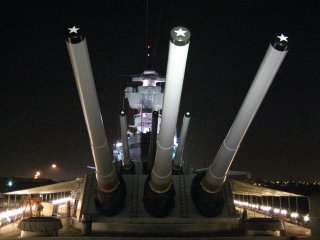
It's not often that I pick up Rolling Stones magazine (how about never?) and less often (if that's possible) that I am drawn to read about Hip Hop rap stars at all - let alone empathetically. But the other day I have to admit that I felt a certain sympathetic vibration for Ghostface Killah, the critically acclaimed Staten Island born rapster.
During the recent holiday travel period I found myself on an airplane sans suitable reading material. I had already read all of my own magazines, nearly memorized the US Airways (award winning) Attache magazine and was getting dirty glances from the man in 12C over whose shoulder I was attempting to read the previous day's USA Today. On my way back from the rear lavatory I spotted an issue of Rolling Stone magazine (Dec 27th issue) in a seat back.
After diving in and lapping up as much information on the current state of popular culture as I could stand, I came across the single page Q&A interview of Killah by Austin Scaggs. What caught my eye was the exploded text from the article - purportedly a quote from the Ghost himslef: "I don't wake up and pop Cristal - I eat a bowl of cereal and read the Koran."
As I read the article though, I was immediately struck by the fact that this quote was at least a partial fabrication. Killah was quoted in the article as having said "I'm not about to say I wake up and pop Cristal and go get my f___kin nails done. I wake up hungry, eat a bowl of cereal, write some music, try to read to read the Koran......"
Perhaps this is a distinction without a difference, but I would say not. The image one gets in the first quote is of a not very humble and perhaps a bit ideologically doctrinaire, while the true quote is of a person a bit more grounded and working on spiritual advancement.
Maybe I'm reading into it too much and perhaps the rap star didn't care one way or another, but I think the author and editors fell down on the job and I don't think the Killah needed a Ghost(face) writer.
Blogged with Flock










